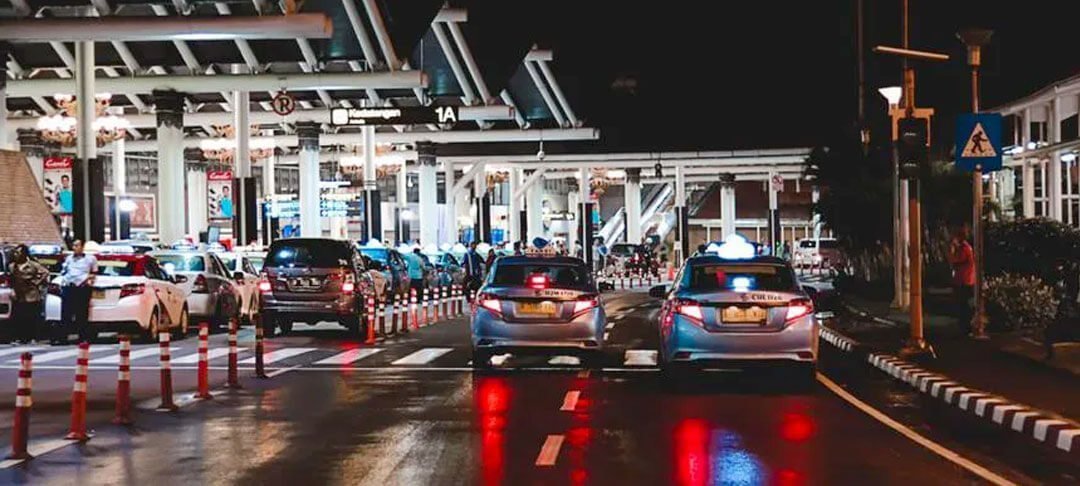The Coronavirus pandemic has completely changed the vacation industry (and many others besides), most notably because of border closures, lockdowns and other travel restrictions which have made it difficult or impossible for guests to reach their destinations. Now that travel restrictions are starting to be eased in some locations, it’s important that property managers understand what these changes mean for them and their business. For many vacation rental hosts, it can be tricky to understand exactly what the restrictions and regulations are, as well as their responsibilities when it comes to following them.
Given how frequently travel restrictions are changing at the moment, we won’t attempt a market-by-market breakdown of the rules currently in place. Instead, this article should help explain what is meant by the different terms being used to describe the regulations, how your guests may be affected by them, and what your responsibilities as a rental host are.
What do the different travel restrictions mean?
There’s a lot of confusing terminology around at the moment, so it can be hard to understand exactly what is and is not permitted. We’ll attempt to break down some of the more frequently used terms and what they mean for guests and rental hosts.
Border closures
Border closures are probably the most obvious travel restrictions when it comes to international visitors. As the term suggests, this means that the border of a country or region is closed to anyone on the outside of it. In most cases there are exceptions to the rule, for example for essential workers, for returning residents or for cross-border employees. However, it is only now that we are starting to see restrictions being removed for holidaymakers, and only in some locations and under certain conditions.
Travel permitted from certain regions
More and more countries are relaxing their current border restrictions to allow an increasing number of exceptions for permitted travel, most notably exceptions based on the region the traveller is coming from. You may have seen terms such as “Travel bubble” or “Travel corridor”, both of which essentially mean that travel is permitted between the regions involved, but not outside of them. The most prominent example of this is probably the travel agreement being discussed between Australia and New Zealand, which would allow guests to move relatively freely between the two countries whilst still facing restrictions on travel beyond the bubble.
In many cases, such permissions depend on “reciprocal (or bilateral) agreements”. That means that both parties have agreed on the same conditions being applied on either side. This isn’t the case for all locations though, which means that guests traveling in one direction may face quarantines or other measures, whereas their counterparts traveling in the opposite direction may not.
Other locations, such as Greece, have not introduced bubbles or corridors per se, but have instead produced a “whitelist”, indicating “safe zones” from which visitors are permitted. In most instances, the visitor origin is determined by the airport from which they flew to the destination rather than country of citizenship or residence.
Quarantine, Self-Isolation & Testing
Whilst some guests are beginning to be able to move between countries, that doesn’t mean that things are back to normal. Even where travel is permitted, there may be certain conditions that must be met, for example around testing and quarantine. Some locations require all visitors to quarantine or self-isolate for a period of time (usually one or two weeks), others are applying different quarantine rules depending on where the visitor comes from.
Certain countries are testing visitors for the Coronavirus upon arrival, or requiring a test in the country of origin before travel is permitted. In most cases, a positive test result will mean that the visitor must undergo quarantine for a period of time. A negative result may mean that they are free to continue unrestricted, or in some locations may still require quarantine or isolation, but generally to a lesser extent than would be required were the test result to be positive.
The difference between “quarantine” and “self-isolation” may be mostly a case of semantics, and some use the terms interchangeably, but as a general rule of thumb it can loosely be determined by whether the restriction is observed or otherwise enforced. For example, in many cases quarantines are strictly required and enforced, meaning that visitors are escorted to a predetermined location and are required to stay there for a period of time. They may face further testing during this time and must return negative results and/or remain symptom free in order to be allowed to move on. Self-isolation is often not as strict, giving the person in question more freedom in how and where they isolate themselves. This may mean that they can continue on to their hotel or vacation rental property, but must remain there for a period of time.
The inconvenience caused by any quarantine or isolation restrictions is likely to severely limit the amount of recreational travel for the time being. We’d recommend prioritising any marketing expenditure on guests who would not be subject to such restrictions if possible, as booking conversion is likely to be low outside of these groups. More information on how guest booking habits are predicted to change is available here.

What are my responsibilities as a Property Manager?
Given the different barriers to travel facing guests, many property managers are wondering what this all means for them. Are you allowed to receive guests at all? Do you have to turn guests away depending on where they come from? Are you responsible for making sure your guests are healthy?
The good news for property managers and hosts is that travel restrictions are by and large governmental responsibilities. Assuming that vacation rentals are currently permitted in your location, you should be able to continue to host guests as planned. You should check your insurance policies to find out your obligations regarding the health of your guests and what would happen were they to become ill, but these obligations are largely independent of travel restrictions and would apply to guests no matter where they came from. Information on keeping your rental property clean and sanitary is available here.
However, you should ensure that you are cooperating with laws and guidelines regarding travel as much as you possibly can. Whilst you may not be able to control where bookings and guests come from, you should not encourage guests to breach restrictions and should adhere to the appropriate cancellation and refund policies if such a situation arises. Given the fact that all these new laws and regulations are very recent and untested, it is currently unclear exactly what your liability would be were you to host guests from a non-permitted location, or who had not followed the relevant guidelines. If you are particularly concerned about this eventuality, we recommend getting in contact with your local authority for clarification.
Bookings cancelled due to travel restrictions
So what happens if a booking needs to be cancelled due to travel restrictions? Bookings made before the pandemic are in many cases subject to the Extenuating Circumstances policies of the booking channel. This may mean that a full refund is offered to the guest if they are unable to travel, even if hosting the guest would be permissible in your region. In order to save the booking, in some cases you may instead be able to rearrange Rebooking Credit with your guests. More information on credit is available here.
However, most sales channels are only applying their Extenuating Circumstances policies to bookings made before a certain date. This means that any guests making a booking now will most likely not be able to claim a full refund. As such, if the guest needs to cancel the booking due to travel restrictions, you will receive compensation in line with your usual cancellation policy. Of course, you may wish to offer a larger refund or arrange a rebooking in order to keep the goodwill of your guests.
How do I keep updated about travel restrictions?
Given how quickly the restrictions are changing, we advise rental managers to regularly check for updates both within their local region, as well as in key guest origin locations. That means that you should ensure you’re up to date with the rules as they apply to your destination, as well as how guests from your key markets are affected.
In most cases, local and national governments are your best source of information. When it comes to information from abroad, you may wish to follow industry news reports such as those from Skift and Short Term Rentalz. Additionally, sites like The Local provide English-language news for several different European countries, and are regularly updated with the latest Coronavirus developments. We’ve also got an article about different online discussion groups which you can use to share your knowledge with other property managers.
The simplest way to manage your rental bookings
Log in to Your.Rentals to manage your bookings now.
Not using Your.Rentals yet?





